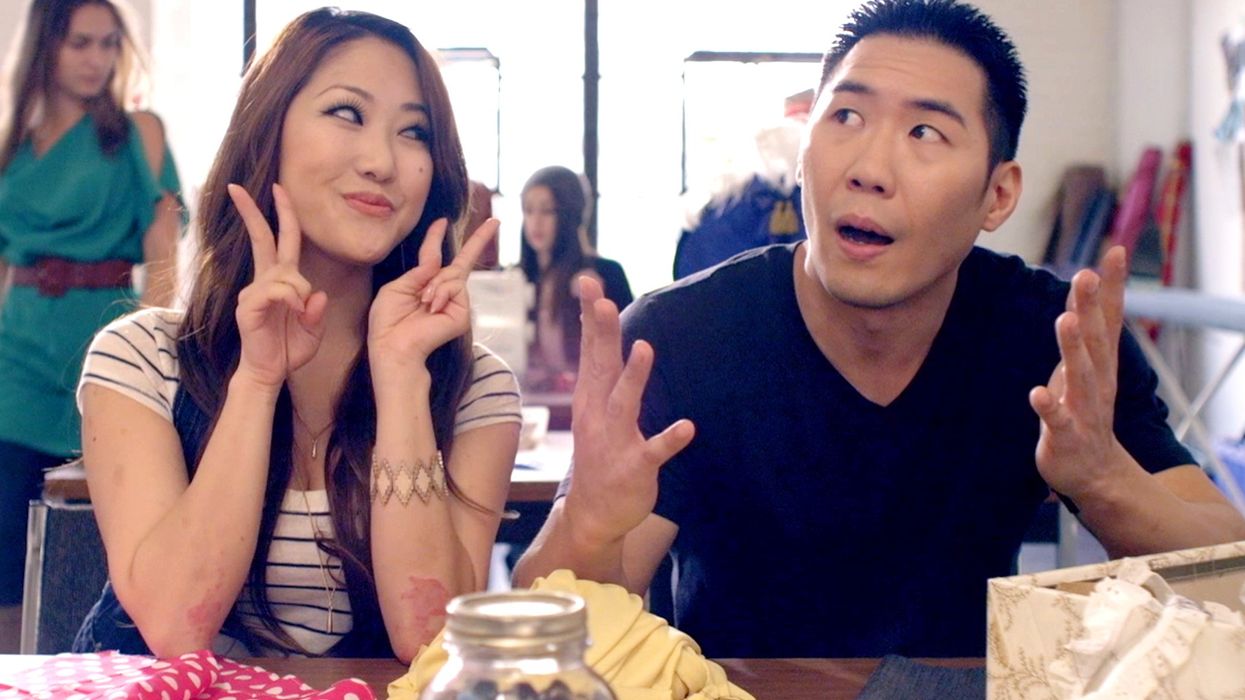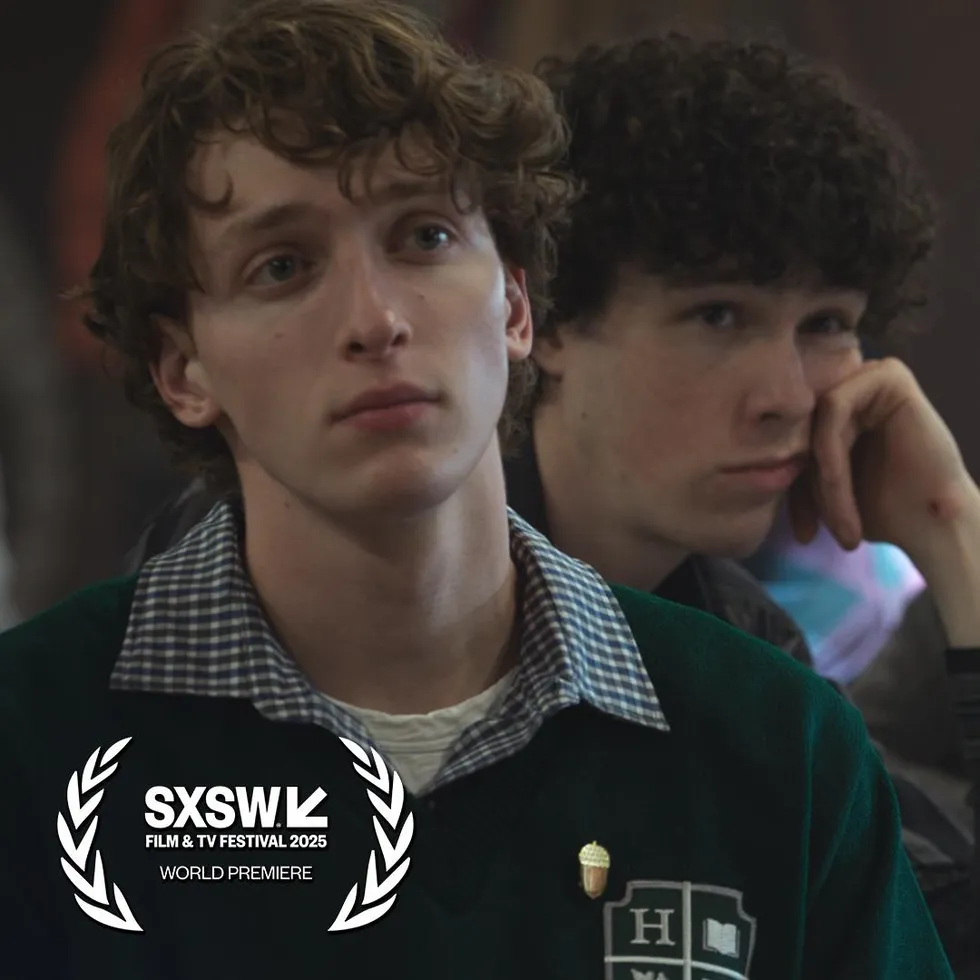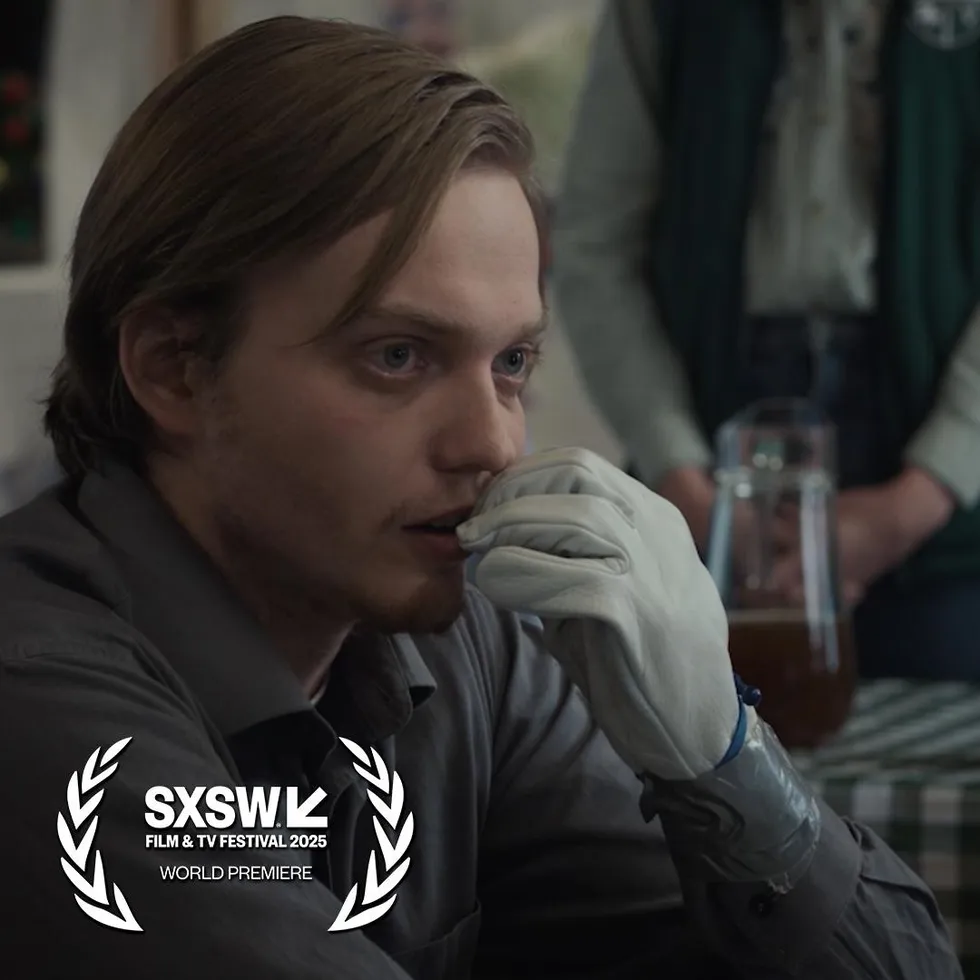Learning to Direct On Set: How Daniel Park Turned His Web Series into a Feature
"Stay true to no film school. I have no film school experience."

Can we do this many scenes? What's the arc of the story? Are there enough non-Koreans in it? These are just a few of the questions Daniel Park had to work through when he adapted his uproarious web series Ktown Cowboys into a feature film of the same name.
We first sat down with Park at the Ktown Cowboys premiere at the 2015 SXSW Film Festival. The film is out this week on digital platforms such as iTunes and Amazon, so give it a watch in conjunction with our interview below, where Daniel talks about the pressures, challenges, and rewards of turning a popular web series into a feature.
"The most challenging thing for me [was] actually learning how to direct while on set. I was like, 'Oh, crap! So I have to learn how to direct people now.' That's some true no-film-school stuff right there.
NFS: Ktown Cowboys was a very popular web series. What was the genesis for the project initially? Was the idea always eventually to make the web series into a feature?
Park: Stay true to no film school. I have no film school experience. I'm an artist, though, and I've used many different mediums. I started off as an illustrator, then went heavy into digital design, which led to motion graphics, and I used to play in bands for years. And then, one day, the writer for Ktown Cowboys, Danny [Cho], who is a stand-up comedian, and I were sitting together and watching an ex-girlfriend of mine edit something that he did.
There was a small moment where he was in drag, but he was playing a "Ktown girl" in this thing. We saw that and were like, "It would be fun to do a series about Ktown that was a little bit more not you in drag, but something based on the funny stories that we had growing up in the area." I had no film experience; I've never even thought about directing. We were like, "Sure. Why not? Let's do it." Danny wrote up the script. I grabbed whatever resources I could, and we shot all around Ktown, and that's how we made the web series.
It just comes from a DIY attitude about making art. We made that, and then it really struck a chord with some people. The people who liked it loved it, and then one thing led to another, and we started getting approached by different people, different producers that wanted us to make a feature film out of it. My initial thought was, "What's the point? Who would watch this? We're going to just lose a bunch of money." But the more I started getting educated about distribution and how the film world works, the more I learned there [was] a possibility. When we found the right people to do it with, we decided to take the plunge.
"There were moments when we liked the location, but something was missing. Instead of us filling [the scene] up with the lighting of choice, we just pulled these neon lights."

NFS: How did the process change when you started working on the feature?
Park: The biggest difference was money. Once we started moving into the feature side of things, there was a lot more pressure and a lot more people figuring out how the dollars and cents made sense, and that affects the writing.
NFS: How so?
Park: Well, you get a lot of "what if" questions from people around you—the producers, financiers. They all have questions and worries about what things mean in terms of business, which I understand perfectly. I mean, if not for that money, I wouldn't have the chance to make [this]. Since this is my first time doing a feature, I wasn't exactly sure where to stop the line of compromise. We did the best we could, and I think we made a lot of good decisions in terms of what we compromised—the bigger picture with business in mind.
"We wanted the ensemble cast to feel like one character, like different facets of the 'Ktown person.'"
There were concerns that there weren't enough non-Koreans in it—should we write in some non-Korean roles and all that. There was concerns about having a lot of scenes where there are five people doing rapid-fire dialogue. That's going to take up a lot of time, which we won't be able to fit into our budget if it's constantly done this way for coverage. Those kinds of things.
Whereas with the web series, we didn't worry about anything. We just said, "Let's do it all, and then we'll figure it out afterward." We just wrote it, and then we hustled. Just got every resource we could to pull that together, but with the feature, you can't just guerilla things. With the web series, we would ask the owner, "Can we shoot, like, for two hours here after the business closes at night?" It was easy for us to bring all of our friends into the act as extras for two hours, but [doing] the feature, we had to be there in the morning. It would affect their business. It's a whole other layer of things that you've got to think about, because you're doing it with a lot more time for the production.

NFS: How was the process different coming up with the story arc for the feature?
Park: I think with the web series, we had a eureka moment. It was so clear to us how we were going to do it. It was a web format. We didn't have to worry about closing some of the doors. With the feature, because it's an ensemble cast, it was tough. Ultimately, what we decided was we wanted the ensemble cast to feel like one character in a way, like different facets of the "Ktown person."
We had to think carefully about how we would tie in everything, how would we create this arc? For me, I think Peter's character has the most full arc, which is what I love about his character, and then [for everyone] else, the arc is really more about the bromance. It's a group of guys and how they genuinely are friends with each other and what that means to have a circle or group of friends.
"The Alexa might have looked too clean for what I wanted; I wanted the camera to reflect the scrappiness of our production."
NFS: What was your relationship like with your DP, Chase Bowman?
Park: We did the basic breakdown before Chase left, and then when he came back, pretty much every day after we stopped shooting, we would take a look at the next location, and we'd go over the shot list that we had in mind. The next day, in the morning, we would go through that shot list one more time and get everything in place. We had a couple of cheap tricks that worked out very well.
There were moments when we liked the location, but something was missing. Instead of us filling [the scene] up with the lighting of choice, we just pulled these neon lights. We would just line them up in patterns to give it that neon glow. To me, that always felt like what K-Town is in both of our heads after we did our scouting. It always has a neon glow to things. That was our cheap fix for anything art-related. That was a good little trick that I thought worked out very well.
NFS: What tools did you use to capture this nighttime neon glow of Korea town?
Park: The DP actually owns some good equipment. Trying to be resourceful, we used his package. He has a Red Epic and an Alexa. Everybody thought I would have picked the Alexa, but actually I went for the Epic. It had a little bit more of grit that I wanted. Unless you're a cinematographer, I don't think the average person really understands or sees the differences [between the cameras] so much, but the Alexa, I thought, might have looked too clean for what I wanted; I wanted the camera to reflect the scrappiness of our production.
"When I started the web series, I didn't want to have any actors. I didn't want good actors or great actors. I admire the art of acting, but I didn't want it. I wanted natural people being themselves."

Park: I think the biggest challenge was— I'm being super honest here—when I started the web series, I didn't want to have any actors. I didn't want good actors or great actors. I admire the art of acting, but I didn't want it. I wanted just natural people being themselves. My friends were very natural on camera, so they killed it for the web series. They did exactly what I was hoping they'd do. I didn't have to do any directing. That's what I wanted to do for this movie. I didn't want to direct the actors because I wanted their natural camaraderie to be shown on screen. I feel like if I'd directed them, it would have distracted from the camaraderie.
"As we got closer to shooting, I realized, 'Oh, my god, it's going to require some directing.... Damn it, I have to direct!' That wasn't what I intended. "
But from when we made the web series to when we went to production, there's a four-year gap. People change during four years. Personalities change, and the characters were still based on their real-life personalities four years ago. The closer we got to production, I realized, "Oh, my god, they're not the same people anymore. I can't get that same natural excitement or comedy or seriousness that they had." The dynamic was different, so as we got closer to shooting, I realized, "Oh, my god, it's going to require some directing.... Damn it, I have to direct!" That wasn't what I intended. It was tough because we were on such a strict schedule. I'll be honest: I think the first week, I wasn't getting it.
By the time the second week rolled around, I think everyone started getting into the flow of things again, and the acting started coming out. The most challenging thing for me [was] actually learning how to direct while on set. I was like, "Oh, crap! So I have to learn how to direct people now." That's some true no-film-school stuff right there.
NFS: What’s your advice for filmmakers?
Park: My overall advice would be to just milk the LA sun. Get that great sunset shot. Whatever you're going to do, just do it. When you shoot for your most ambitious, crazy, lofty dream, just do it, and then you'll see where you end up.
Another thing to think about—this surprises me and I have to remind myself often—is that [film] is a mental thing. A lot of this art is mentally draining. You've got so many different people to work with, and there are a lot of excuses and opportunity for self-doubt. You've just got to stay strong with what got you going in the first place.
I read this David Fincher interview where he said that in being a director, you think it's about being creative or being artistic. But if you're doing a feature film, what directing becomes is how much of the original vision you get to keep. I forgot the exact number, but I think it's something like 65%; he said if you can keep 65% of your original vision, you've won. There's a lot of truth to that.
If you're a filmmaker and you have a strong producer and team, stick your ground. Do not budge. Fight them every single step of the way. Stick to your original vision.
You can check out Ktown Cowboys on iTunes and Amazon.
Source: Ktown Cowboys














